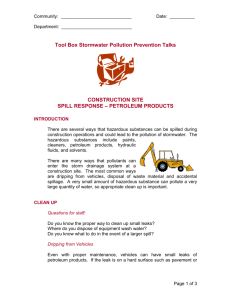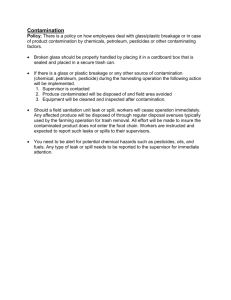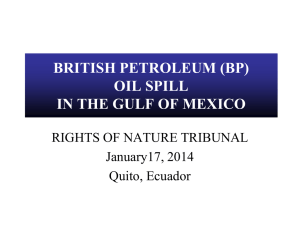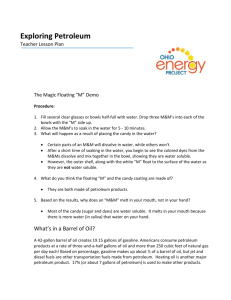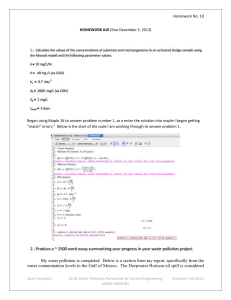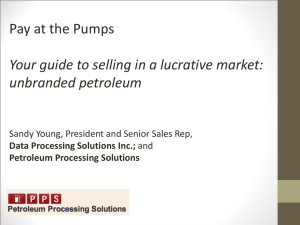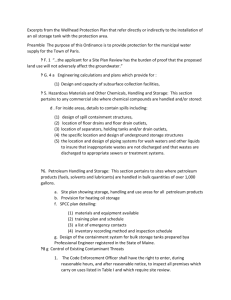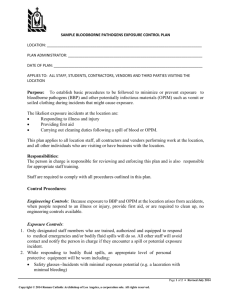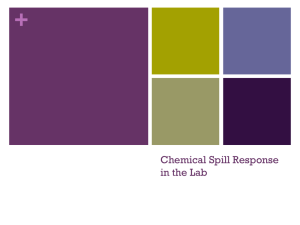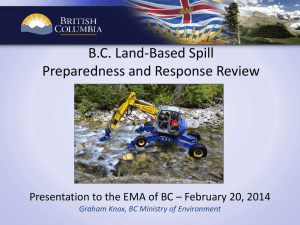Tool Box Stormwater Pollution Prevention Talks
advertisement
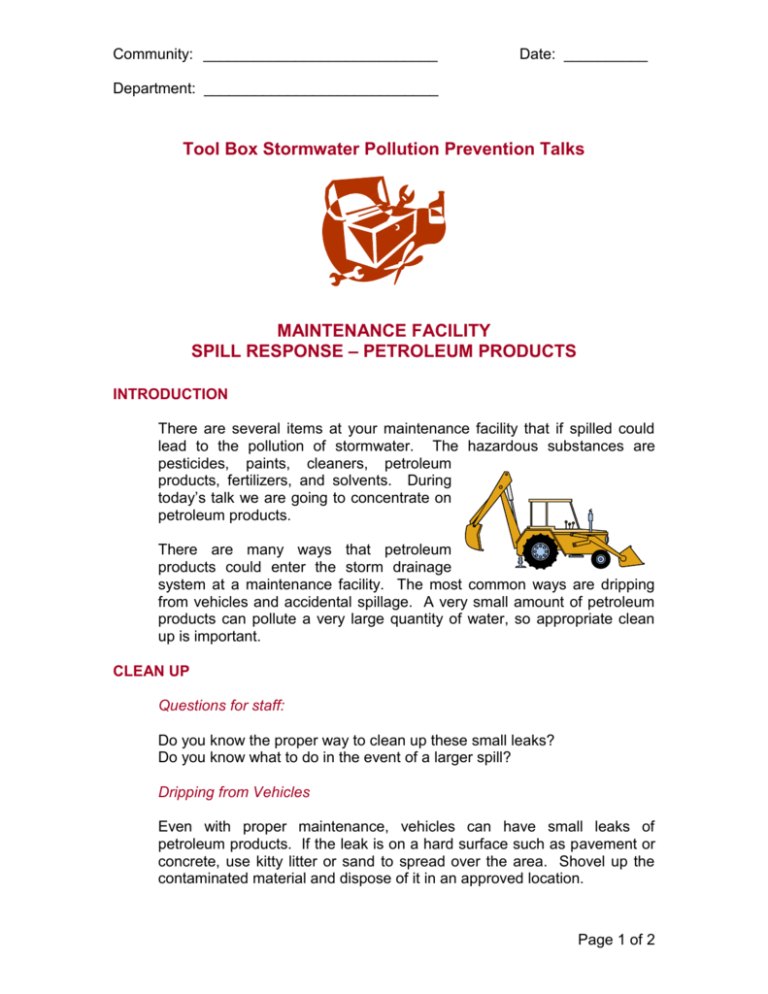
Community: ____________________________ Date: __________ Department: ____________________________ Tool Box Stormwater Pollution Prevention Talks MAINTENANCE FACILITY SPILL RESPONSE – PETROLEUM PRODUCTS INTRODUCTION There are several items at your maintenance facility that if spilled could lead to the pollution of stormwater. The hazardous substances are pesticides, paints, cleaners, petroleum products, fertilizers, and solvents. During today’s talk we are going to concentrate on petroleum products. There are many ways that petroleum products could enter the storm drainage system at a maintenance facility. The most common ways are dripping from vehicles and accidental spillage. A very small amount of petroleum products can pollute a very large quantity of water, so appropriate clean up is important. CLEAN UP Questions for staff: Do you know the proper way to clean up these small leaks? Do you know what to do in the event of a larger spill? Dripping from Vehicles Even with proper maintenance, vehicles can have small leaks of petroleum products. If the leak is on a hard surface such as pavement or concrete, use kitty litter or sand to spread over the area. Shovel up the contaminated material and dispose of it in an approved location. Page 1 of 2 If the leak occurs on a gravel surface, immediately use a shovel to collect the contaminated soil. If left, it can quickly contaminate a larger area. Again, dispose of the contaminated material in an approved location. Spill If the spill is greater than 25 gallons, it must be reported to Ohio EPA (800-282-9378), the local fire department, and the local emergency planning committee. These numbers should be posted in the maintenance facility. If the spill is less than 25 gallons, then all contaminated soil should be collected and disposed of in an approved location. POINTS TO REMEMBER Fast response to a spill can limit the amount of contamination and reduce pollution. On a hard surface use kitty litter or sand to clean up spills. Spills greater than 25 gallons must be reported. ATTENDED BY: __________________________________ __________________________________ __________________________________ __________________________________ __________________________________ __________________________________ __________________________________ __________________________________ __________________________________ __________________________________ __________________________________ Page 2 of 2
